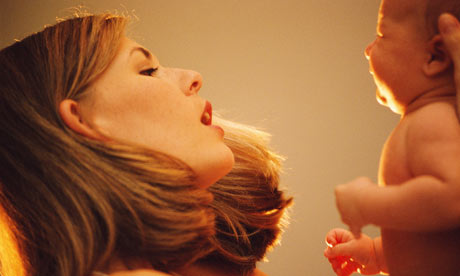
As novelists and readers blush at fictional failures to rise to the challenge of writing sexily about sex, let us celebrate on Poem of the Week the wit, lyricism and, yes, subtle eroticism of Gascoigne's Lullaby.
At once, that personalising title issues a warning. The Elizabethan memento mori (of which George Gascoigne's poem is a species) is as unlikely to be autobiographical as the average Petrarchan sonnet of that period. Still, when a poem's perspective seems especially distinctive, it's tempting, and perhaps justified, to look for personal reference in it, as we do when we seek the identity of Shakespeare's "master-mistress" or read Wyatt's poignant lyrics in the light of his relationship with Anne Boleyn. However, it's worth remembering that in 1572 when the poem was collected in A Hundred Sundry Flowers, George Gascoigne was most probably not yet 50. He could have been syphilitic, or otherwise infirm, of course. On the other hand, his narrator may be as unreliable as his erection.
Gascoigne was a restlessly innovative writer. Here, he has spliced genres and produced something new, amusing and beautiful – a geriatric lullaby which is also, virtually, a love-poem. Assonance is revelled in, but perfectly controlled. The frequent repetition of the word "lullaby" is a master-stroke and ensures that the poem has all the onomatopoeic lilt of a true lullaby. The liquid consonant, L, infiltrates the sound-scape. We frequently meet with "still" and "stilled": "will" is three times a rhyme-word, picked up twice by "still" and once by "skill". And we also have "beguile/ beguiled", that lovely old word meaning "deceive (d)". Further alliterative effects include the repeated "w" sounds in the first and final stanzas. These sound effects are often delicately humorous, but more than that, they act as gentle brakes, pulling the poem back a little from the swift on-rush of its metre. And, of course, that braking motion reminds us of the theme: renunciation.
The lulling of sexual energies leads the poet to suggest that he has become womanly as well as babyish (and old). But, whatever the state of his hormones, the speaker draws on other sources of creative energy. Gascoigne's line, despite the consonantal brake pads, never loses its robustness. There is no flaccidity, even if "little Robin" has gone to sleep.
Sensual joy is not only present in the sounds; its recollection glimmers in such lines as, "Full many wanton babes have I/ Which must be stilled by lullaby" – a couplet which conjures both a scattering of illegitimate offspring, and a posse of grown-up "babes" who couldn't keep their hands off the speaker. From this moment on, it seems as if the word "lullaby" becomes, as a verb, a mischievous synonym for "make-love-to". As a noun, it hints at self-pleasuring. Whenever it occurs, it creates a motion of playful fondling.
As far as I know, the poem has not been set to music, but it evokes the melodies of many traditional cradle-songs. Such tunes are often in a minor key. Is this because the genre is linked to the nativity, and Mary's premonition of the death of the Christ-child? Or is it because all child-birth was once a potent reminder of mortality? This poem's cadences carry mournful echoes, but the touch is like a skilled lutenist's, light and charming.
Gascoigne's farewell to sex, after all, may not be final. Sleepers awake – sometimes with an erection. "And when you rise with waking eye, /Remember Gascoigne's lullaby." There is perhaps a suspicion here that the writer's warning to give himself a well-earned break may not be heeded.
So shall we posthumously offer Gascoigne's Lullaby the No Sex Award? Or the Good Sex Award, even? And which poem would you nominate for the Bad Sex prize?
Gascoigne's Lullaby
Sing lullaby, as women do,
Wherewith they bring their babes to rest;
And lullaby can I sing too,
As womanly as can the best.
With lullaby they still the child,
And if I be not much beguiled,
Full many wanton babes have I
Which must be stilled with lullaby.
First, lullaby my youthful years,
It is now time to go to bed;
For crooked age and hoary hairs
Have won the haven within my head.
With lullaby, then, youth, be still,
With lullaby content thy will,
Since courage quails and comes behind,
Go sleep, and so beguile thy mind.
Next, lullaby my gazing eyes
Which wonted were to glance apace.
For every glass may now suffice
To show the furrows in my face.
With lullaby, then, wink awhile,
With lullaby your looks beguile.
Let no fair face, nor beauty bright
Entice you eft with vain delight.
And lullaby, my wanton will:
Let reason's rule now reign thy thought,
Since all too late I find by skill
How dear I have thy fancies bought.
With lullaby now take thine ease,
With lullaby thy doubts appease
For trust to this, if thou be still,
My body shall obey thy will.
Eke lullaby my loving boy,
My little Robin, take thy rest.
Since age is cold and nothing coy,
Keep close thy coin, for so is best.
With lullaby be thou content,
With lullaby thy lusts relent.
Let others pay which hath mo pence;
Thou art too poor for such expense.
Thus, lullaby my youth, mine eyes,
My will, my ware and all that was.
I can no mo delays devise,
But welcome pain, let pleasure pass.
With lullaby now take your leave,
With lullaby your dreams deceive,
And when you rise with waking eye,
Remember Gascoigne's lullaby.

